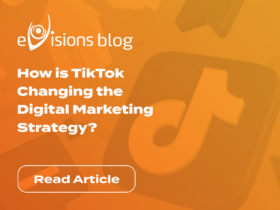Social Media Marketing: Trends & Predictions for the Next Decade
14. 11. 2024 AutorAs we move further into the digital age, social media continues to evolve, transforming how businesses engage with consumers.
Over the next decade, advancements in technology, shifts in consumer behavior, and new marketing strategies will reshape the social media landscape. To stay competitive, brands must adapt and anticipate emerging trends. In this article, we explore the key trends and predictions that will shape the future of social media marketing in the years to come, along with real-world examples of how brands are already navigating these changes.

The Rise of Artificial Intelligence (AI) and Automation
Artificial intelligence (AI) and machine learning have already become cornerstones of social media platforms, but their role is set to expand dramatically over the next decade. From personalizing content to automating customer service, AI will allow brands to offer highly tailored experiences at scale.
We’re already seeing AI-generated content and sophisticated automation tools that can handle everything from scheduling posts to analyzing campaign performance. Brands are increasingly adopting conversational AI models like ChatGPT to handle customer service queries, content creation, and social community engagement on social media. For example, companies like KLM Royal Dutch Airlines use AI-powered chatbots to handle customer inquiries on Facebook Messenger.

In the near future, expect predictive analytics to allow marketers to anticipate consumer behavior before campaigns even launch. This will lead to smarter, more efficient marketing strategies where content is optimized in real-time based on user interactions. In this AI-driven world, human creativity will remain critical, but the ability to harness AI effectively will separate the most successful marketers from the rest. AI will push the boundaries of what’s possible in social media marketing, enabling brands to be smarter, faster, and more responsive than ever before.
eVisions Advertising uses AI and machine learning, incorporating advanced automation tools to help brands deliver personalized content, track campaign performance, and enhance customer engagement.

Short-Form Video Will Reign Supreme
Short-form video is already the dominant content format, thanks to platforms like TikTok, Instagram Reels, and YouTube Shorts. As consumer attention spans shrink, this type of easily digestible content is becoming the best way for brands to captivate audiences—especially younger demographics like Gen Z and millennials.
Explore how we utilize Instagram to engage with our community by following us here.
Duolingo has become a viral sensation on TikTok by embracing quirky, humorous content that resonates with its audience. The brand’s mascot, Duo the Owl, is featured in numerous short-form videos that playfully interact with current trends and memes, turning Duolingo into one of the most popular brands on TikTok. Their lighthearted, meme-worthy approach proves that a brand can thrive by being highly relatable and relevant to pop culture trends in short-form videos.


The future of short-form videos will be shaped by their growing interactivity and shoppability. Platforms are evolving beyond just offering a feed of videos for users to passively consume. Instead, interactive features like polls, quizzes, and clickable elements embedded within videos will become more common. This will give brands a way to make their videos not just entertaining, but actionable. For example, a fashion brand might create a video where viewers can click on different outfits being showcased to instantly see prices or make a purchase. Shoppable videos will become an integral part of the consumer journey, allowing users to transition seamlessly from discovery to purchase without ever leaving the app.

Privacy and Data Ethics Will Shape Marketing Strategies
As privacy regulations become stricter, with laws like GDPR and CCPA setting the standard, social media marketers will need to adapt to an era of transparency and consent. Consumers are more aware of how their data is used, and brands will need to prioritize ethical data practices to build trust.
Apple’s recent iOS updates have had a significant impact on privacy and data collection practices across the tech and marketing industries. These updates emphasize data privacy, giving users more control over their personal information, especially when it comes to tracking by apps. Major platforms like Facebook (Meta) and Snapchat have been hit hardest by this change, as their business models rely heavily on data collection for ad targeting. Meta, in particular, stated that Apple’s privacy changes could cost it billions in ad revenue. Advertisers have had to rethink their strategies as precise targeting through third-party data has become less effective.

The ethical use of data will become a differentiator for brands. Consumers are increasingly demanding transparency about how their data is collected and used, and they are more likely to support companies that demonstrate responsible data practices. Brands that prioritize privacy, by making their policies clear and easily accessible, will build trust and loyalty. Expect to see marketing campaigns that highlight a brand’s commitment to data ethics, similar to how companies today promote sustainability efforts. The ethical handling of data will be more than just a compliance issue; it will become part of a brand’s core value proposition.

Conclusion
The next decade of social media marketing will be shaped by rapid advancements in technology and evolving consumer expectations. As trends like AI-driven personalization, short-form video dominance, and data privacy take center stage, brands will need to adapt their strategies to stay relevant and competitive. While challenges such as stricter regulations and shifting data practices pose obstacles, they also offer opportunities for companies to build deeper, more authentic connections with their audiences.






![Achieving 276% y-o-y Blog Traffic Growth with Topical Authority [Case Study]](https://www.evisions-advertising.com/yPVTOLUdUV/uploads//2024/08/e-blog__EN-1-280x210.png)



Komentáře